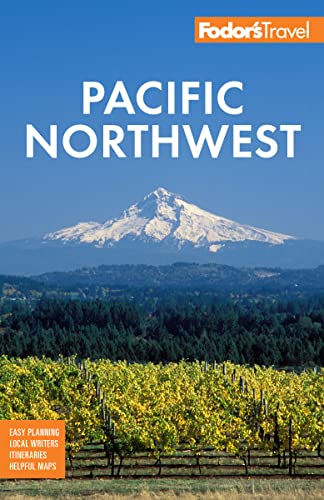Vancouver and Victoria Today
Separated from the rest of Canada by the Canadian Rockies, Vancouver and Victoria have always marched to a West Coast rhythm that is in many ways more similar to Seattle, Portland, and even parts of California than to their Canadian counterparts. Add to this their proximity to the sea and coastal mountains and you have winters that are mild, summers that are balmy, and landscapes that are lush with temperate forests and gardens. Nowhere else in Canada do daffodils bloom in February! And despite Victoria's old-English facades, these are young cities with active, outdoorsy, and health-conscious populations. Residents sometimes exude a slightly smug, laissez-faire attitude, but who can blame them? They live in a place that is consistently ranked as one of the most beautiful and livable in the world.
The outdoors rule. Few cities have mountains, oceans, and pristine rain forests all on their doorstep. In both Vancouver and Victoria, locals take full advantage of these options themselves and have also realized the incredible opportunities in promoting ecotourism. Whatever your age or ability, the range of activities includes family whale-watching excursions; stellar golf, hiking, fishing, and white-knuckle rafting expeditions; and no-holds-barred extreme wilderness adventures. Victoria is a popular departure point for exploring the myriad culinary and eco-adventures on Vancouver Island, while Vancouver is the gateway to sophisticated Whistler and the more rugged interior regions of British Columbia. It's fair to say that all this fresh air makes for an extremely health-oriented population. Fitness clubs are part and parcel of many office and residential buildings, and smoking is prohibited in restaurants, bars, beaches, parks, and other public places. Stereotypes aside, many West Coast denizens really do live in fleece and yoga pants.
Entrepreneurs are in. The Vancouver Economic Commission, a city-run economic development agency, likes to boast about the region's combination of natural beauty and brains. As an example, Meetup.com, the online network where people meet others with similar interests: in Vancouver, the largest Meetup group draws hikers, while the second largest is for software developers. Indeed, city coffee shops are full of laptop-tapping mobile workers, while in the Gastown neighborhood, developers continue their conversion of once-seedy structures into offices for high-tech firms and design studios. Entrepreneurs around Vancouver and across Vancouver Island are also establishing agricultural, culinary, and tourism businesses that build on the region's natural assets.
Green is great. West Coasters are more eco-conscious than the average North American. New construction out here usually involves eco-oriented practices from thermal heating to energy-saving fixtures; rooftop gardens add to the relatively pristine air; and recycling is a daily ritual in business and at home. The area's hotels were among the first to introduce green practices when they started installing dual-flush toilets (that's two levels of flushes, not flushing twice) and asking guests to use towels more than once. Car-sharing services are commonplace, and bicycle lanes rule; Vancouver has the highest percentage of two-wheel commuters in Canada; Victoria is also near the top of the list. Many companies provide free or subsidized transit passes to employees who give up commuting by car, too. To do as the locals do, be sure to carry an eco-friendly water bottle and a reusable shopping bag. Maximize your use of public transit with a Day Pass (C$9.75 on stored-value card, C$11 cash), which is good on the SeaBus, SkyTrain, and local buses; or rent a bike to explore on two wheels.
Ethnic diversity is everywhere. The West Coast's easy access to Pacific Rim destinations has generated a great influx of Asian immigrants, making Vancouver the most Asian metropolis outside of Asia. News is delivered in 22 different languages; shops and ATMs post signs in English, Mandarin, Cantonese, Punjabi, Farsi, and even Vietnamese. Ironically, French, Canada's other official language, is rarely seen or heard except on the two Radio Canada stations. This diversity creates a cultural mosaic that comes vibrantly to life in various festivals (such as the Celebration of Light), community activities (including the Richmond Night Market), and, above all, in a range of superb restaurants. While Victoria is less diverse, that's beginning to change; the city's population of visible minorities rose by a whopping 40% between 1996 and 2006, and growing diversity remains on the upswing.




